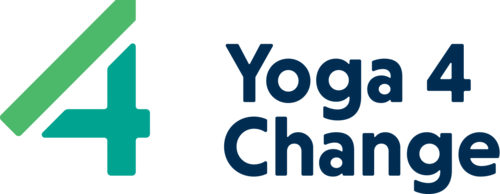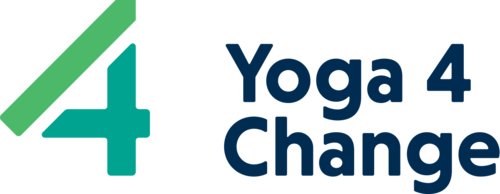Founded by Atlantic Beach resident Kathryn Thomas, Yoga 4 Change was a little over a year old when it came out a big winner at last month’s One Spark in downtown Jacksonville.
The nonprofit agency, which primarily reaches out to the high-risk population in Jacksonville and introduces them to yoga to help them manage anger, stress and overcome other mental and physical challenges, was awarded $32,000 in addition to $2,000 in public contributions made at the annual crowdfunding event.
Seventy volunteers, some who had been introduced to the nonprofit through its work in local jails, correctional facilities and halfway houses for transitioning offenders, helped set up and take down three tents on display each day during the five-day event.
“We had what we call ‘inmate cards’ that are written by those we teach yoga to while they’re incarcerated, which had statements about forgiveness, their expectations when they got out of jail and their other feelings,” said Thomas, who currently serves as executive director for Yoga 4 Change. “One card said, ‘Yoga killed the evil criminal inside of me.’ We hung that one right at eye level so people would see it. The cards are very impactful.”
One Spark organizers said the crowdfunding festival had about 300,000 attendees and more than 117,000 of them cast ballots for 537 creators. Yoga 4 Change was one of the 234 projects offered reward-based funding through the event.
Thomas said the award money will be used to pay yoga teachers who have volunteered up to this point — 14 of her 20 yoga instructors who are not going through their initial training.
“We did really well at One Spark, receiving 500 votes more than the second-highest vote-getter in our category,” Thomas said. “But when we start paying teachers, [the money] won’t last long.”
She says the rush is on now for sponsors and other donors to help Yoga 4 Change meet the financial goal they had set for One Spark.
“Because we want to expand, we went into One Spark hoping to collect $100,000, which would pay for the teachers and a salary for myself and a director of marketing,” Thomas said. “We’re not looking for millions of dollars, but some sponsorships and additional donations would help us get where we need to be.”
Thomas also said that while the nonprofit does accept donations of gently or slightly used yoga mats, they really need donations of dollars so they can purchase heavy duty mats.
“Most of our donated mats, even slightly used, won’t last that long because we’re not teaching in the usual yoga studio environment,” Thomas said. “We’re teaching on cement floors and at outside events, so money buys better mats that last longer.”
In addition to going into correction facilities, schools and other locations, Yoga 4 Change teaches at many outdoor venues including Hemming Park in downtown Jacksonville, where they now host two public classes each week.
Thomas started Yoga 4 Change by herself, introduced to the art after she suffered a severe ankle injury while on leave during service as a Navy helicopter pilot. Told by doctors that she would never walk without a limp and would be unable to run, she found yoga helped her fully rehabilitate her ankle. Stationed in Hawaii, she began teaching classes to at-risk kids and realized the positive impact yoga could have.
When she relocated to Mayport with her husband, Ross, who still works as a pilot with the Navy, Thomas started the 501(c)(3) nonprofit agency and eventually got other local yoga teachers to volunteer their time to help.
All yoga classes, available at no charge, follow a curriculum designed to increase self-confidence, decrease stress, increase impulse control and promote healthy living. The nonprofit has worked with the Jacksonville Sheriff’s Office since its founding and is now in other correctional facilities — which will include the Baker Correctional Institute in the next few months.
Thomas says that the program is also customized to work in the schools. Its student program generally consists of six once-a-week meetings, with a focus on themes like gratitude, anti-bullying, forgiveness and vulnerability. Another critical objective of the Yoga 4 Change teaching model is to provide a learning tool, which is accessible to all students regardless of their socioeconomic status or educational challenges
While the Yoga 4 Change curriculum is applicable and is being introduced in public, private and charter school students, from kindergarten through high school, it’s the impact of introducing yoga to the criminal population — or rather diverting some youthful offenders and addicts out of that downward spiral through yoga — is where Thomas says they are having a positive impact.
“A girl I had taught yoga to while she was in a corrections facility ran up to me at One Spark and asked if I remembered her,” Thomas said. “Since we’ve only been doing this for a year, I did remember her well. She said she had joined the military because of me, rather than doing drugs as she did before. It’s been pretty powerful.”
So powerful that people in Georgia, Connecticut, Colorado and Hawaii have reached out to Thomas to find out more about starting Yoga 4 Change in their own communities.
“The woman who lived in Maui heard about me while she was training stateside to be a yoga teacher,” Thomas said. “There are a lot of wellness centers in Maui, along with people suffering from substance abuse, so she wants to start it there.”
Thomas is relying on her band of yoga teachers to meet all their commitments. Yoga 4 Change is preparing to work with Families Support Services so foster kids will have yoga at summer camps, and is also planning to visit more Duval County schools next year.
Thomas says people need to know that yoga is making a difference in the lives of many individuals — and will really help the entire community in the long run.
“Here and in Florida as a whole, the recidivism rate and the inmate population is going up every year, and as you can hear in the media there’s a lot of violence going around,” she said. “And while Alcoholics Anonymous and religion reaches some people, it doesn’t work for everybody. We have to have a way for people to get out their anger in a non-violent, non-drug-using way. Yoga allows people to get rid of the stress in their body, and it allows people to deal with traumatic things in their lives a new way.”
She says that people normally pay a $15 drop-in fee to attend a for-profit yoga class.
“But people getting out of jail, addicted to drugs and trying to get clean can’t afford that,” she said. “We don’t charge our facilities for our yoga programs, because there’s no money left in corrections and there’s no money left in education. But we still have to make a change in the direction we’re going, so we need the community to support us to help us try a new idea.
“It may sound weird to some, but it’s really working.”


